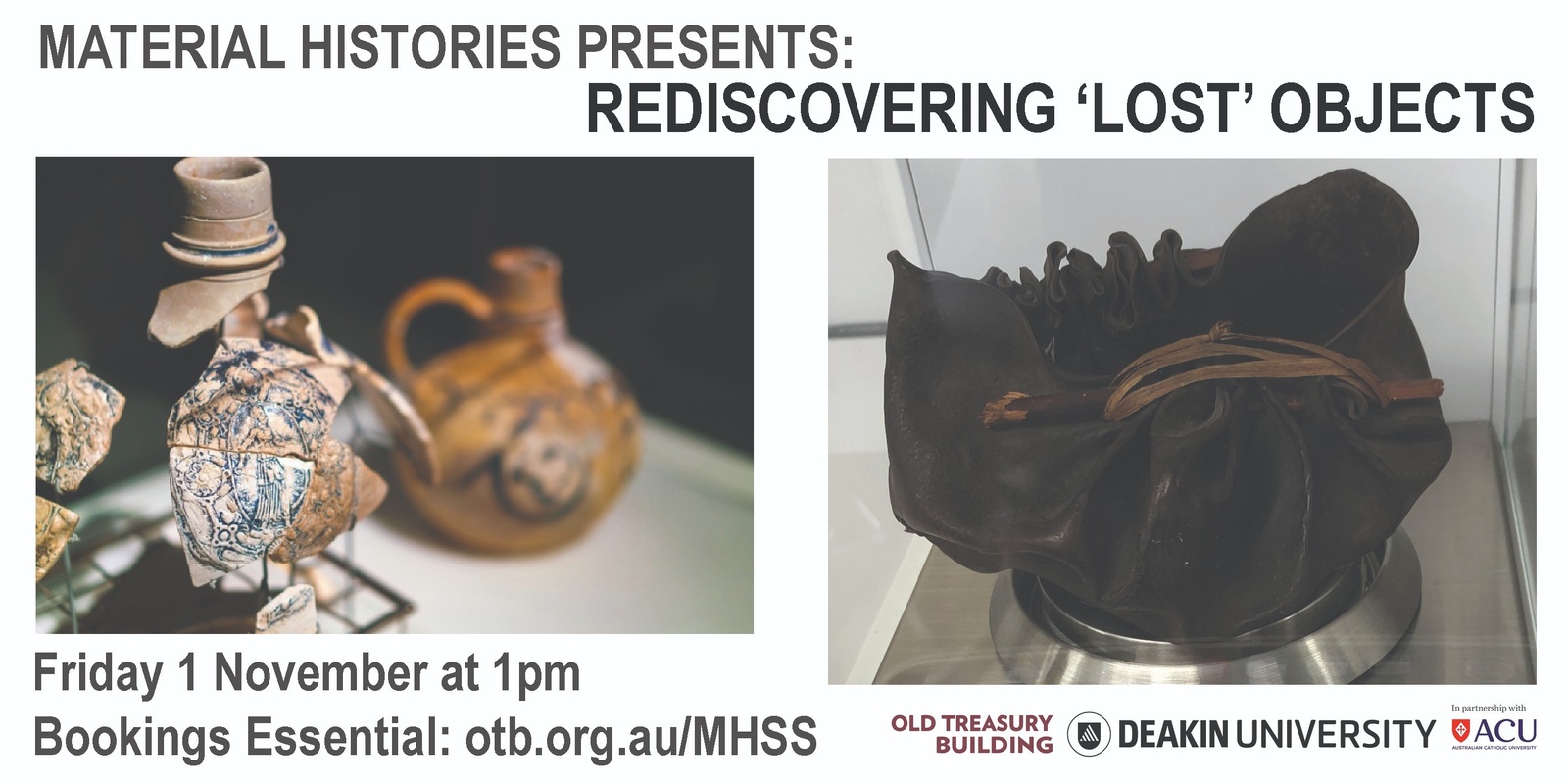Material Histories: Rediscovering ‘Lost’ Objects
Event description
We live surrounded by material things. Some are mundane and utilitarian, others exotic objects of desire, but all our belongings have something to say about who we are and how we live. Objects reflect both culture and history. Individually and collectively, they shape our lives, link us to others and connect us to the past. Yet objects are often strangely absent from accounts of past lives. This seminar series aims to unpack some of the stories that objects can tell about the present and about the past. We also hope to provide a forum for discussion for those of us interested in material histories. We aim to cast the net widely, with no limitations on either time or space.
First speaker:
Batavia and the personification of hope
with Corioli Souter
This cordon pulle, or jug, is reconstructed from sherds collected from Batavia (1629), which was wrecked inshore from the reef on which it foundered. Decorated with distinctive cobalt blue rings and cordons around the neck, these large, spheroid vessels also have an apron of sprigged medallions on their bellies including masks, rampart unicorns and lions along with the coat of arms of Dutch cities. These reconstructed sherds depict something quite different — the female allegory of Hope — which are reinterpreted with reference to the fragmentary nature of the archive in relation to Dutch women both in Batavia, on the island of Java, and aboard the fated vessel of the same name. Judith Gijsbertsz, daughter of the ship’s predikant, provides a new perspective to this iconic story.
Corioli Souter is a curator, archaeologist, and head of the Department of Maritime Heritage at the Western Australian Museum (WAM) often working in collaboration with other state, national, international museums and collections; tertiary institutions; heritage agencies; community organisations and the private sector.
Image (left above): Ceramic fragments from the Batavia shipwreck depict a woman with an anchor – the personification of hope. (Supplied: Western Australian Museum)
Second speaker:
Tasmanian Aboriginal Kelp Water Containers
with Gaye Sculthorpe
This paper will discuss methods of provenance research relating to a long lost rikawa – kelp water container – collected by Bruni d’Entrecasteaux in 1792 – and rediscovered in 2019. It will highlight the importance of research collaboration and community engagement in this work and the issue of making museum documentation records easily accessible. A workshop organised in Paris in 2022 brought together three kelp containers which were studied using different methodologies and the results which have recently been published will be discussed.
Gaye Sculthorpe is a palawa woman from Tasmania, currently working a Professor of Cultural Heritage and Museum Studies at Deakin University. She has previously worked at Museums Victoria and more recently as Curator, Oceania, at the British Museum (2013-2022). She has as strong interest in early collections of Aboriginal materials distributed around the world and is currently working on a project about Aboriginal objects sent to the Great Exhibitions c.1851-1939.
Image (right above): Rikawa - Kelp container, Musee du quai Branly, 2022.
Material Histories is presented by Old Treasury Building in partnership with Deakin University and Australian Catholic University.

Tickets for good, not greed Humanitix dedicates 100% of profits from booking fees to charity

